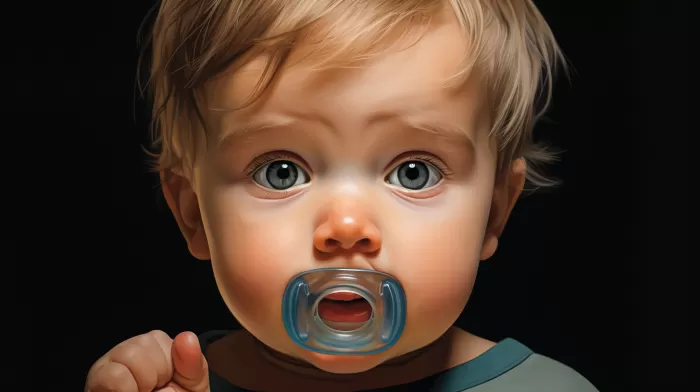Sucking on a pacifier is a surefire way to quiet a fussy baby, but did you know that excessive pacifier use may have long-lasting effects on the emotional growth of boys? According to researchers from the University of Wisconsin-Madison, using a pacifier too much as a child may result in poor emotional maturity later in life, specifically for boys. In this article, we will delve deeper into this fascinating research, as well as explore why girls are not affected in the same way and provide tips on how to strike the right balance with pacifier use.
How Pacifiers Affect Emotional Development in Boys
A baby’s brain learns a lot about emotions by mimicking the facial expressions they see around them. When a child has a pacifier in their mouth, this important learning process is disrupted. Paula Niedenthal, UW-Madison psychology professor and lead author of the study, explains it further: “By reflecting what another person is doing, you create some part of the feeling yourself. That’s one of the ways we understand what someone is feeling, especially if they seem angry, but they’re saying they’re not; or they’re smiling, but the context isn’t right for happiness.”
According to the research published in Basic and Applied Psychology, mimicry is a vital learning tool for children. The researchers discovered that adults who had used pacifiers the most during their childhood often exhibited the same lack of facial emotional expression as people who had undergone facial-paralyzing Botox injections. In other words, too much pacifier use can stunt emotional growth in boys by limiting their ability to mimic facial expressions of emotions.
Why Girls Are Not Affected in the Same Way
Interestingly, the researchers did not find the same detrimental outcomes in girls who used pacifiers excessively during their childhood. The reason for this discrepancy, according to Niedenthal, may be due to girls generally experiencing faster emotional development than boys.
“There’s no effect of pacifier use on these outcomes for girls, and there’s a detriment for boys with the length of pacifier use even outside of any anxiety or attachment issues that may affect emotional development,” says Niedenthal.
Striking the Right Balance with Pacifier Use
It’s important to note that the researchers do not claim that all pacifier use is detrimental to children’s emotional development. In some cases, such as nighttime use when there are no people around to mimic, pacifiers may not have a negative impact. However, it’s crucial for parents to be aware of the potential consequences and consider limiting pacifier use during waking hours when babies can actively observe and mimic facial expressions.
To strike the right balance, consider the following tips:
- Limit daytime pacifier use: Encourage your child to mimic facial expressions by reducing the amount of time they use a pacifier during the day. This gives them more opportunities to observe and practice mimicking emotions without any obstruction.
- Interact with your child frequently: Be aware of your own facial expressions and emotions when interacting with your child, as babies learn by observing their parents and caregivers. Spend time playing with them, talking to them, and actively showing your own emotions.
- Introduce alternatives to soothe your child: Instead of relying solely on a pacifier to calm a fussy baby, consider alternative comforting techniques such as rocking, singing, or swaddling. These methods can also provide emotional bonding experiences between the caregiver and the child.
- Gradually reduce pacifier use as your child grows: As your child becomes more emotionally aware and better able to communicate their feelings, start phasing out pacifier use altogether. This will help them further develop their emotional skills and become more communicative.
In conclusion, striking the right balance between proper pacifier use and encouraging emotional development is essential for the overall well-being of your child, particularly for boys. By being conscious of the potential effects of pacifiers on emotional growth and taking proactive steps to limit their use, parents can support their children in developing the emotional intelligence and skills they will need throughout their lives.



